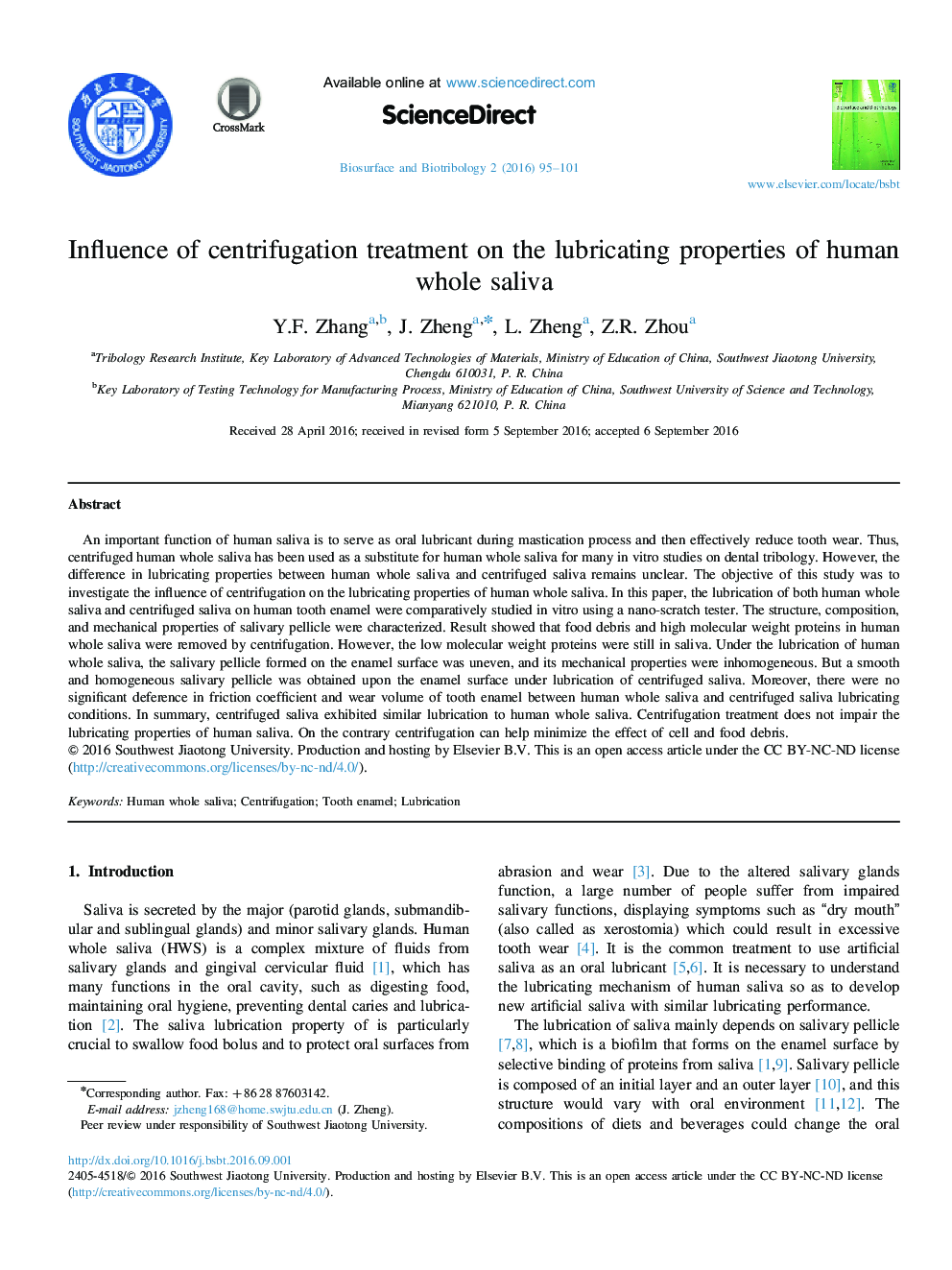| Article ID | Journal | Published Year | Pages | File Type |
|---|---|---|---|---|
| 5011109 | Biosurface and Biotribology | 2016 | 7 Pages |
An important function of human saliva is to serve as oral lubricant during mastication process and then effectively reduce tooth wear. Thus, centrifuged human whole saliva has been used as a substitute for human whole saliva for many in vitro studies on dental tribology. However, the difference in lubricating properties between human whole saliva and centrifuged saliva remains unclear. The objective of this study was to investigate the influence of centrifugation on the lubricating properties of human whole saliva. In this paper, the lubrication of both human whole saliva and centrifuged saliva on human tooth enamel were comparatively studied in vitro using a nano-scratch tester. The structure, composition, and mechanical properties of salivary pellicle were characterized. Result showed that food debris and high molecular weight proteins in human whole saliva were removed by centrifugation. However, the low molecular weight proteins were still in saliva. Under the lubrication of human whole saliva, the salivary pellicle formed on the enamel surface was uneven, and its mechanical properties were inhomogeneous. But a smooth and homogeneous salivary pellicle was obtained upon the enamel surface under lubrication of centrifuged saliva. Moreover, there were no significant deference in friction coefficient and wear volume of tooth enamel between human whole saliva and centrifuged saliva lubricating conditions. In summary, centrifuged saliva exhibited similar lubrication to human whole saliva. Centrifugation treatment does not impair the lubricating properties of human saliva. On the contrary centrifugation can help minimize the effect of cell and food debris.
